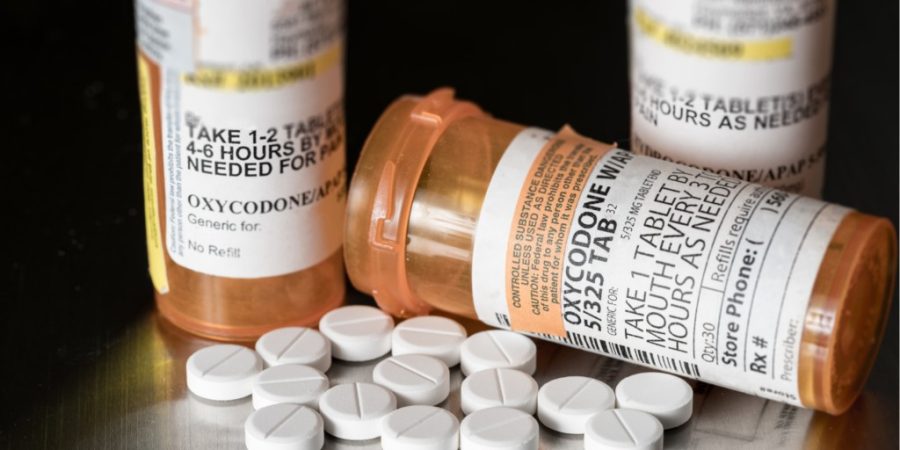
For many people with COVID-19, the recovery process was very simple and took only a few weeks. But for others, side effects of COVID-19 persist. Known as COVID long haulers, these individuals can experience symptoms and side effects of COVID-19 long after their body has stopped fighting the virus. And in some contexts, this can increase their risk for painkiller addiction.
This is especially true in veterans, who already face a predisposition toward opioid dependence. As physicians prescribe opioid pain medications to treat long-term COVID-19 effects, veterans who receive these prescriptions will need support to avoid and to treat painkiller addiction. But first, let’s examine COVID long haulers and why they’re using opioid medications and narcotic painkillers to deal with their residual symptoms.
Table of Contents
COVID Long Haulers

Known commonly as long COVID or more clinically as “post-acute sequelae of COVID-19,” this condition refers to COVID-19 symptoms that last for weeks, months, or longer after recovering from COVID-19. These can include normal symptoms of COVID-19, like:
- Shortness of breath
- Coughing
- Fatigue
- Headaches
However, this can also present with less common COVID-19 symptoms, such as:
- Chest pain
- Brain fog
- Muscle or joint pain
This issue is fairly common, with more than three million Americans (out of 31 million Americans infected with COVID-19) presenting with long-term COVID-19 effects. Given how common this issue is, many doctors are trying to find ways to help mitigate these negative health effects.
In cases where chronic pain appears as a result of COVID-19, opioid painkillers may be prescribed. In fact, one study found that in 1,000 cases, doctors wrote nine more opioid prescriptions than they normally would have. This is in addition to 22 more prescriptions for benzodiazepines, which are addictive medications that are used to treat anxiety.
While there are legitimate uses for these medications, there is a real concern that COVID long haulers may now face increased risk of painkiller addiction due to their new medications. This fear is bolstered by opioid addiction statistics, which show that more than 20 percent of people who receive opioids for chronic pain misuse their medications. Veterans in particular are at increased risk of developing opioid use disorders due to issues like post-traumatic stress disorder, combat exposure, and military sexual trauma.
For these reasons, veterans taking opioids to treat long-term COVID-19 symptoms should be very wary of painkiller addiction. Let’s examine some of the ways that veterans can stay safe from pain medication addiction.
How to Avoid Opioid Dependence and Painkiller Addiction

When taking prescription opioids for long-term COVID-19 symptoms, there are a few steps that veterans can take to minimize the risk of dependence. These allow veterans to safely use prescription opioids to treat pain while avoiding painkiller addiction issues, so they should be closely followed for as long as an individual takes these medications.
- Do Not Take Extra Doses: Often, opioid dependence starts when someone takes more opioids than what they’re prescribed. This makes the body require more opioids to treat pain, which leads to taking more and more opioids. While individuals sometimes find that their medications lose efficacy over time, it’s important to only increase your dosage under the supervision of a medical professional.
- Take Opioids Only as Prescribed: The way that people take opioids can greatly impact how they affect the body. For this reason, prescription painkillers should only be taken in the way printed on the pill bottle. So if the directions are to swallow opioids orally, then they should not be chewed, crushed, dissolved, or taken in any other manner without a doctor’s approval.
- Talk to Your Provider: If you experience any issues at all with your medications, you should promptly discuss them with your health care provider. Changes in side effects, how you take the medication, and how the medication works for you are all important and should be coordinated with a professional’s guidance. These are highly addictive drugs, so there is no shame in double checking and making sure you’re staying safe while taking them.
Taking these steps is a highly effective way to minimize your risk of developing a painkiller addiction. However, they are not foolproof. Because opioid addiction and dependence are so powerful, addiction is still possible even while taking these steps. For that reason, it’s important to familiarize yourself with veteran opioid addiction treatment options in your area.
Opioid Addiction Treatment Options in DeLand, Florida
When veterans develop addiction, it is often due, at least partially, to underlying factors related to their service. And while some veterans have found success in civilian treatment programs, many veterans find that they work best with other military personnel. That’s why at Heroes’ Mile, our military veteran staff members make all the difference for the people that we help.
By employing addiction treatment programs in an environment that’s filled with veterans in treatment and veterans in the care staff, we allow for open, honest discussions of military issues with people who really understand. Whether it’s initially getting off of opioids in our veteran detox program, or learning addiction coping skills in our veteran rehabilitation program, or transitioning back to regular life in an outpatient program, we’re here for you every step of the way. That’s why we offer free alumni services, so that we can provide ongoing support throughout your recovery.
Would you like to learn more about how we help veterans with painkiller addiction? You can call our friendly and respectful admissions specialists at 888-838-6692 or ask your questions online. If you’re ready to quit opioids and beat painkiller addiction, then we’re a community of veterans that’s ready to help.
The post Painkiller Addiction: More Opioids for COVID Long Haulers appeared first on Heroes’ Mile Veterans Recovery Center.
Source
Original Author: Heroes’ Mile

